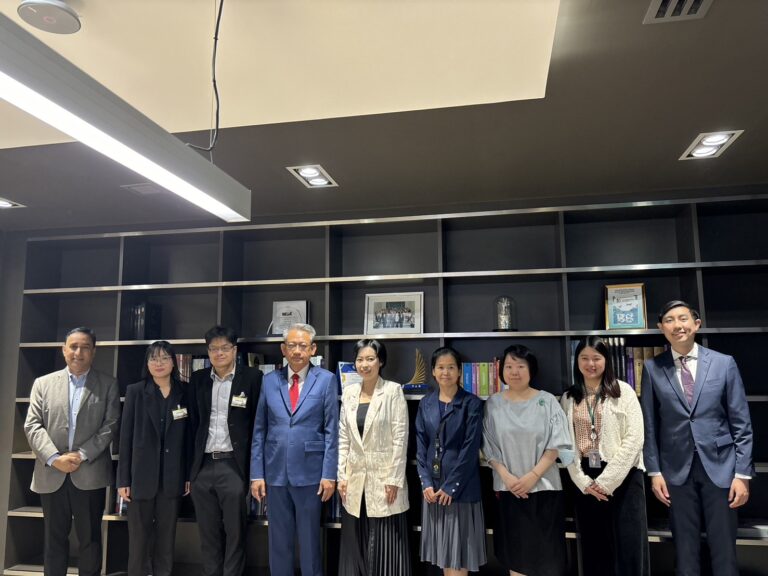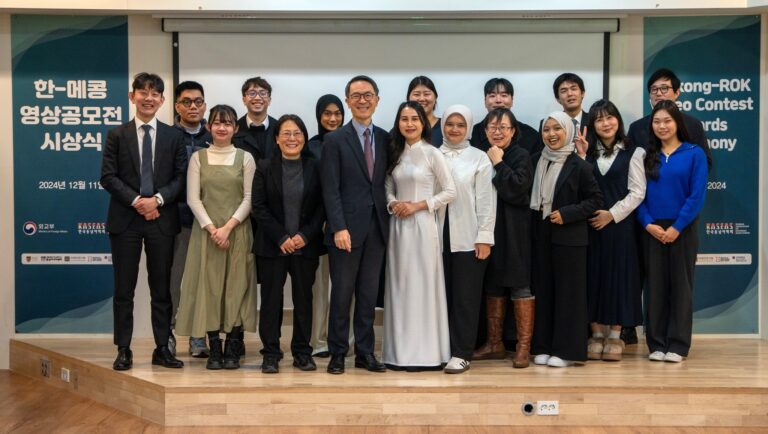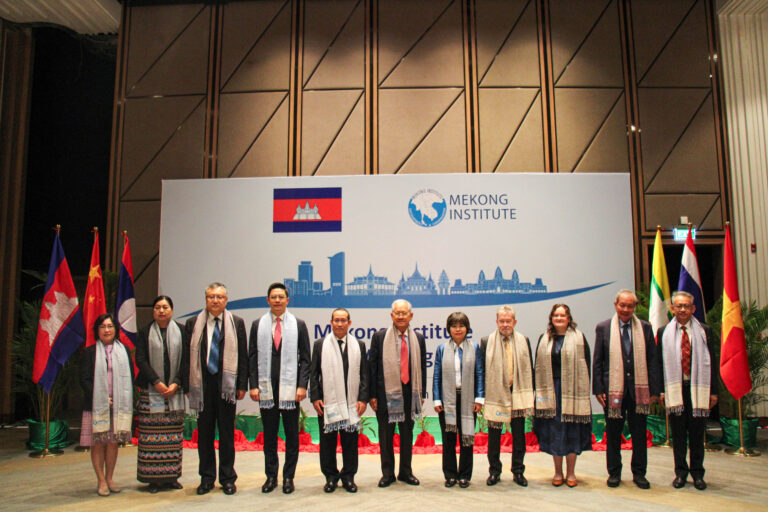The Mekong Institute (MI) conducted a one-week TOT (Training of Trainer) Program on Trade Policy Development and Trade Negotiation from 30 June to 4 July, 2014 at its residential training center, Khon Kaen, Thailand. The program is part of the three-year project on Capacity Building for Integrating CLMV (Cambodia, Laos, Myanmar and Vietnam) Economies into the ASEAN Economic Community (AEC) in 2015, funded by the New Zealand Aid Programme (NZAP).
The training program highlighted the importance of ASEAN in the regional economies and facilitation of the AEC integration through trade policy and negotiation skills development for government officials from the five Greater Mekong countries. Participants are able to acquire necessary knowledge and skills in trade policies and methodologies to form trade negotiation plans. These knowledge and skills include negotiations on non-tariff issues like Sanitary and Phytosanitary (SPS) measures and Technical Barriers to Trade (TBT). The training also helped participants understand the importance of standardization process at all levels (national, regional, FTAs, global), regional approaches to standardization, trade policy principles, lessons from trade development experience, trade growth, the WTO and Doha agenda and the regional agenda.
Besides gaining the knowledge, participants also had chances to practice the trade negotiation skills via simulations. These simulations used various negotiation scenarios in export quotas, anti-dumping, tariff negotiations and standards for meat products. As a result, participants could better understand the effective process, strategies and tactics in trade negotiation for policy-making and practical use.
A total of 23 participants from five GMS countries attended the program. They are mid-to-senior officials from the Ministry of Commerce, Ministry of Industry and Trade, Foreign Trade Policy Department, Trade Policy Development and Trade Promotion Agencies involved in trade promotion.
Based on the knowledge and skills they have learned from the training course, participants will start to put their assignments – actions plans into implementation, so as to organize the national workshops in their home countries for trade-related government agencies and private sector related to trade promotion during July to September, 2014.







